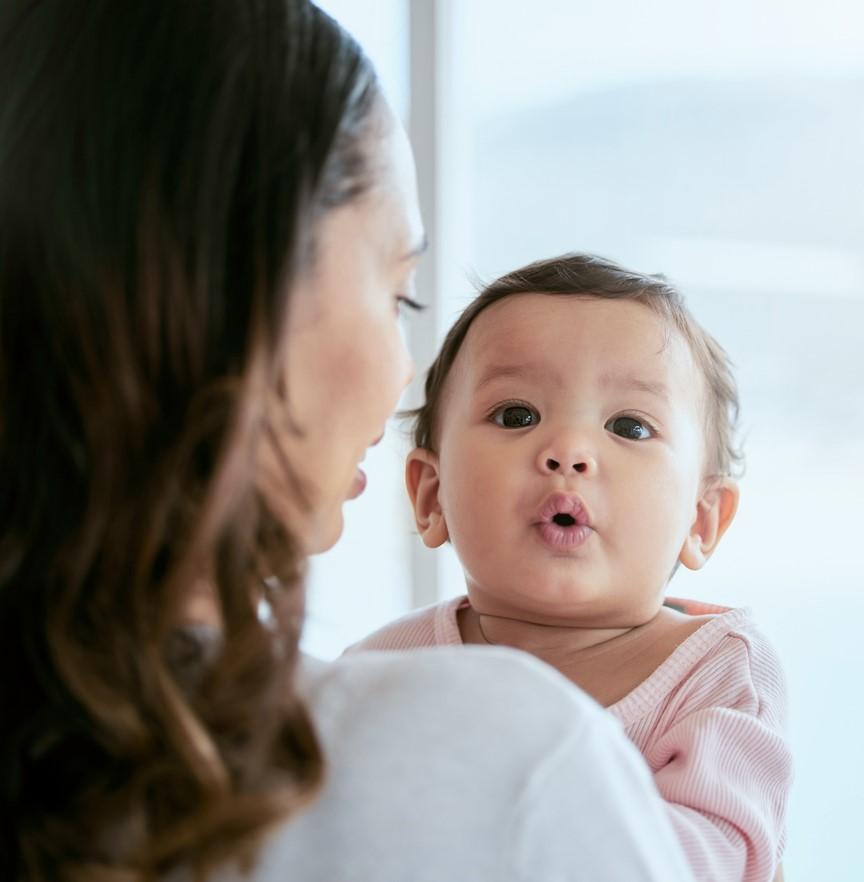A meta-analysis of eight studies finds that the risk of overall infant neurodevelopment didn't change during the first year of the COVID-19 pandemic but that those with gestational exposure to SARS-CoV-2 were at higher risk for impaired communication and fine motor skills.
In the study, published late last week in JAMA Network Open, a team led by Harvard Medical School researchers conducted a meta-analysis of eight observational studies using the Ages and Stages Questionnaire, third edition (ASQ-3), to evaluate neurodevelopment in 21,419 infants 3 months to 1 year old before or during the pandemic.
The included studies were conducted in the United States, Canada, China, and Kuwait, were published by Mar 25, 2022, and had overall quality scores of 6 to 8 of a possible 9.
Communication, fine motor delays
Among all infants, 9,981 were screened before the pandemic, while 11,438 were screened after the pandemic began. Among the latter, 700 were born to mothers who had COVID-19 during pregnancy, while 7,778 had no known SARS-CoV-2 exposure, and maternal infection status was unknown for 2,960.
Of the 8,892 infants screened from January 2020 to January 2021, 7% had neurodevelopmental impairment (NDI). Among the 691 infants who had been exposed to SARS-CoV-2 in utero, 12% had NDI, compared with 9% of those not exposed to the virus.
Relative to infants screened from 2015 to 2019, the pandemic cohort had greater odds of impaired communication (odds ratio [OR], 1.70) and a higher likelihood of fine motor impairment (OR, 3.46) but no significant increases in overall development (OR, 1.12), gross (OR, 1.10) or fine (OR, 1.41) motor development, or personal-social development (OR, 1.20).
A subgroup analysis conducted according to infant age at screening showed that, at age 6 months, the risk of NDI was similar between the pandemic and prepandemic screening groups. Infants screened during the pandemic, however, were more likely to be at higher risk for communication (OR, 1.86) and personal-social (OR, 1.55) impairment at 12 months.
The findings "suggest that overall neurodevelopment in the first year of life was not changed by either being born or raised during the SARS-CoV-2 pandemic or by gestational exposure to SARS-CoV-2," the researchers wrote. "Interestingly, the first year of life during the COVID-19 pandemic, regardless of maternal infection, was significantly associated with the risk of communication delay among the offspring."
The authors noted that SARS-CoV-2 could affect fetal neurodevelopment through direct fetal infection, maternal infection that spreads to the fetus, neurologic abnormalities, maternal immune activation, marked and persistent maternal stress, and the mother's environmental, chemical, or dietary factors.
"Higher levels of COVID-19–related stress were reported for both mothers and fathers of infants aged 0 to 6 months and were associated with insensitive parenting practices, including decreased emotional responsiveness in only mothers, which could lessen the reciprocal exchanges that support language development in early childhood," they wrote. "Additionally, opportunities to promote language and social development through new experiences outside the home, including visits with extended family and friends or attendance at a child care center, were lessened for many during the pandemic."
Precise impact still unclear
In a related commentary, Andreane Lavallee, PhD, and Dani Dumitriu, MD, PhD, both of Columbia University Vagelos College of Physicians and Surgeons, said the results should be interpreted with caution because ASQ-3 results weren't available for all infants, and the comparison between infants with and without gestational SARS-CoV-2 exposure was limited to only 171 virus-exposed and 219 unexposed infants. Likewise, the comparison between the prepandemic and pandemic cohorts is based on 3,215 and 9,981 infants, respectively.
"The specific sample size for each comparison is not clearly presented in the text or in the figures, potentially leading a rushed reader to the conclusion that the increased risk of communication impairment in infants screened during the pandemic and increased risk of fine motor impairment in infants with in utero exposure to maternal SARS-CoV-2 infection are based on larger sample sizes than the cumulative data available to date in the literature," they wrote.
Another caveat, Lavallee and Dumitriu said, was that the study authors' interpretation of infants screened during the pandemic doesn't allow differentiation between the independent and/or interactive links between neurodevelopment and in-utero exposure to the pandemic (eg, maternal stress) versus the infant growing up in a changed environment—especially for those screened at 1 year.
"The precise impact of the COVID-19 pandemic and exposure to this novel virus on infants remains nonetheless unclear, and it should be noted that this systematic review did not consider timing of exposure during pregnancy, maternal infection severity, or exposure to various SARS-CoV-2 variants—all factors that could eventually be proven to contribute to subtle adverse neurodevelopmental outcomes," they wrote.
Because NDI that is discovered early can often be treated or reversed, the systematic review should be continually updated as new evidence surfaces, they concluded, because the ASQ-3 administered in infancy isn't predictive of long-term outcomes.
"The scientific and medical community must therefore not become complacent in the face of good news and must continue to assiduously investigate potential adverse health consequences for this vulnerable population as these infants age into various risk windows," Lavallee and Dumitriu concluded.






















